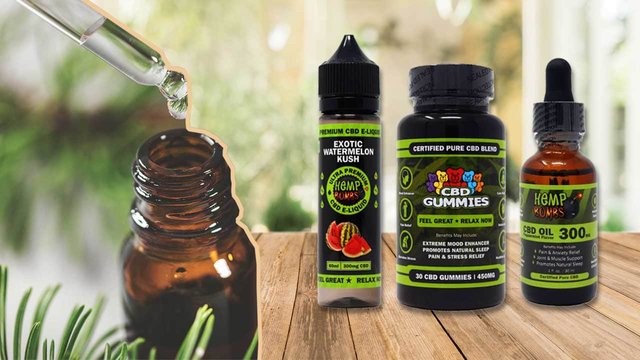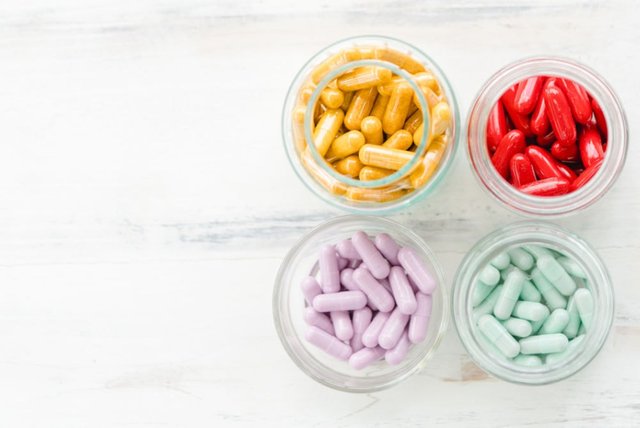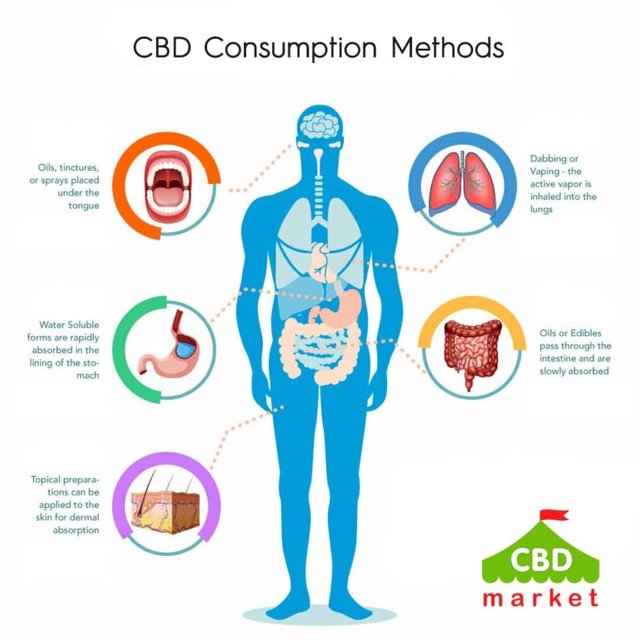Ranking Bioavailability of Different CBD Products
What Does Bioavailability Mean?

CBD bioavailability is the percentage amount of the CBD that is absorbed into the bloodstream determined mainly by the product you ingest and how it is administered also known as the process of absorption.

Thus, the potency of the product will also depend on the amount absorbed into the bloodstream or the bioavailability, the higher the amount, the stronger the effects. This is very important when it comes to CBD use since some of the more popular routes have lower bioavailability than other methods of ingestion. In addition, studies have found that women have higher bioavailability compared to men.
Bioavailability and Delivery Methods of CBD Products
Before CBD works, it must first be transferred from the consumption or application point (the route of administration) into your bloodstream and then transported throughout your receptors where it will take its effect on you before gradually being eliminated from your body.
Therefore, the way you consume or ingest CBD products will govern the distribution, the active amount, the lasting effects, and the process of elimination.
According to studies, a process known as the first-pass metabolism limits oral bioavailability. An oral CBD product taken by swallowing a capsule or eating an edible will first enter your digestive system before being absorbed. It will then pass through your portal vein into your liver, where it will be metabolized along with other molecules. Your liver contains enzymes that reduce the CBD concentration levels before passing the remains on to the bloodstream. This process reduces bioavailability, thereby limiting the efficiency and effects of oral CBD oil absorption.
An oral CBD product taken by swallowing a capsule or eating an edible will first enter your digestive system before being absorbed.
There are two types of CBD absorption through the skin:
One type is a topical method that includes CBD containing ointments, salves, creams, and lotions, which can be applied onto the skin. This method never enters the bloodstream; rather it meets the receptors above the skin and does its job.
The second type is a transdermal CBD patch application that sticks onto a problem area of your skin. Research has found that this method directly enters the bloodstream, bypassing the first-pass metabolism process, and therefore, it has a much higher bioavailability than oral methods.
Inhalation of CBD also results in a high bioavailability as it too bypasses the liver and digestive tract, as it enters the blood directly through air sac lining membranes of the lungs.
What CBD Products are the Most Effective?
Today, there are numerous CBD products on the market with different consumption methods, such as:
- CBD oils and tinctures (sublingual consumption)
- CBD capsules and pills, CBD edibles, CBD drinks (oral method of consumption)
- CBD vapes (inhalation method)
- CBD topical creams (topical and transdermal applications)

However, considering bioavailability, some methods will be delivered faster and have more effects than others. There is really no comparing CBD topical vs oral since topical solutions never enter the bloodstream. Although swallowing CBD products has become very popular in consuming CBD oil, it has been found to have a low bioavailability as the concentrations are reduced by the digestive tract system and enzymes in the liver as these systems break down molecules before sending them off into the bloodstream.
Transdermal patches and inhalers are shown to have the highest bioavailability as these methods bypass these systems and go directly into the bloodstream. Smoking or vaping also bypass these systems and enters the bloodstream through the lungs, and therefore, they too have a high bioavailability.
| Method of Ingestion | CBD Bioavailability Rate |
|---|---|
| Oral | 6-15% |
| Sublingual | 12-35% |
| Inhalation | 40-50% |
| Topical | 2% |
| Transdermal | 95% |
How to Increase CBD Bioavailability?
There are actually a few ways to increase CBD bioavailability.
The first, way is to use CBD sublingual methods. Using sublingual methods is where you place CBD right under your tongue administering it directly into the sublingual gland. Sublingual products include tinctures, sprays, lozenges, oils, and more. This method affects your body more quickly and efficiently.
The University of Nottingham conducted a study and found that combining CBD with long-chain triglycerides equivalent to a meal that’s high in fats, can increase CBD bioavailability. The fats will act as binding agents and the CBD will attach to them so that when the fats are metabolized for energy the CBD will be too and then available for immediate use. In fact, ingesting fats with CBD can increase the bioavailability by four times.
Which Foods Can Help Increase the Bioavailability of CBD?
- Coconut oil
- Soybean oil
- Olive oil
- Sesame oil
- Nuts
- Fish
- Meat
- Avocado
- Eggs
Another way to increase bioavailability is by ensuring you are consuming high-quality CBD products as bioavailability increases with the grade of the substance used.
Final Thoughts
Using CBD has many valuable benefits associated with it. However, you want to ensure you are getting the most effects out of your CBD products.
Bioavailability is the percentage of CBD in your bloodstream that can actually be used, and some methods of use can decrease the bioavailability of CBD substantially causing it to have very little effects.
Swallowing CBD is one example, as with this method the CBD has to pass through the liver and intestinal tracts that break down substances before passing it to the blood. However, taking sublingual CBD is a method that goes through the glands directly to the blood and can raise the bioavailability percentage. You can also eat foods that are high in fats as CBD will get broken down for energy along with fats and will be available for immediate use.
Originally appeared at CBD.market blog